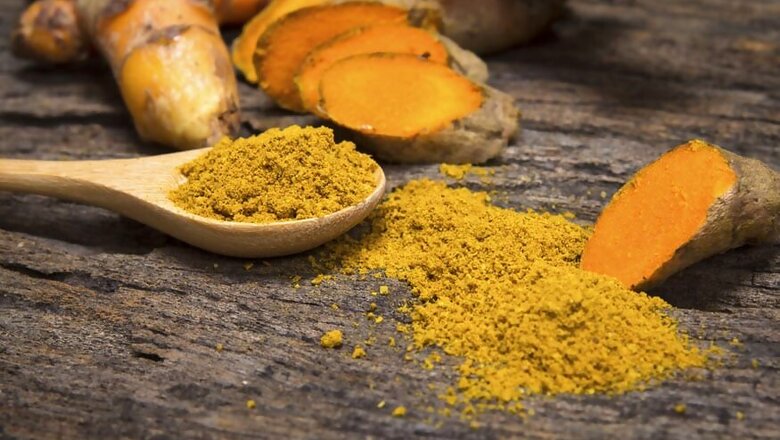
views
New US animal research has found that several natural compounds found in food could help to slow the growth of prostate cancer, the most common cancer affecting American men.
Carried out by the University of Texas at Austin, the new study used a unique analytical approach to screen a variety of plant-based chemicals, instead of testing a single chemical like many other studies.
The first part of the research involved testing 142 natural compounds found in foods on mouse and human cells, to see which inhibited the growth of prostate cancer cells either when administered alone or in combination with another nutrient.
The results suggested that that ursolic acid, found in apple peels and rosemary; curcumin, the plant compound in turmeric; and resveratrol, a natural compound found in red grapes or berries, were the most promising active ingredients to take to the next stage of testing on animal studies.
The team found that combining ursolic acid with either curcumin or resveratrol blocked the uptake of glutamine by cancer cells in mice, a nutrient the cells need in order to grow.
"After screening a natural compound library, we developed an unbiased look at combinations of nutrients that have a better effect on prostate cancer than existing drugs," explained one of the study's authors Stefano Tiziani, "The beauty of this study is that we were able to inhibit tumor growth in mice without toxicity."
Other previous studies have also found that various chemicals found in foods such as turmeric, apple peels and green tea could potentially be beneficial in helping to ward off cancer, by minimizing one of the risk factors for disease, inflammation within the body. People who have chronic inflammation, for example from chronic infection, autoimmune disease or conditions such as obesity have a higher cancer risk because of damage to normal cells.
"These nutrients have potential anti-cancer properties and are readily available," says Tiziani. "We only need to increase concentration beyond levels found in a healthy diet for an effect on prostate cancer cells."
The findings are published in the journal Precision Oncology.


















Comments
0 comment